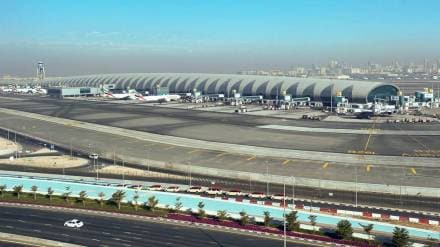Dubai plans to construct a larger airport, Al Maktoum International Airport, on the outskirts of the city, aiming to replace Dubai International by the 2030s, according to Dubai Airports CEO Paul Griffiths. Despite the Israel-Hamas war in Gaza, passenger numbers at Dubai International are forecasted to reach 86.9 million this year, surpassing pre-pandemic levels.
Dubai International Airport is set to surpass its pre-pandemic passenger numbers from 2019, demonstrating a robust recovery in travel following the global impact of the coronavirus. As of the third quarter of this year, the airport, renowned as the world’s busiest for international travel and home to Emirates airline, has welcomed 64.5 million passengers. Projections indicate a full-year total of 86.8 million passengers, surpassing the 2019 figure of 86.3 million. This rebound, ahead of initial projections by almost a year, reflects the airport’s resilience.
Design
Designs for the new airport are currently in progress, and the development is driven by the anticipation of exceeding the maximum capacity of Dubai International at around 120 million passengers annually.
Griffiths highlighted that the new airport, designed on a modular basis, will not have traditional terminals but aims for a more intimate and streamlined approach, signaling a shift in the business model for airports. The project is expected to extend into the 2050s, reflecting a long-term perspective on aviation infrastructure.
India leads in top destinations for Dubai
Dubai’s main airport has witnessed 308,000 total takeoffs and landings in the third quarter, with India leading in destinations, followed by Saudi Arabia, Pakistan, the U.S., and Russia. Despite global challenges, Dubai’s strategic significance for East-West travel remains evident. Hartsfield-Jackson Atlanta International Airport retains its status as the busiest passenger airport worldwide.
The announcement by Paul Griffiths, CEO of Dubai Airports, coincides with the Dubai Air Show at Al Maktoum International Airport, situated 45 kilometers away from Dubai International Airport. While the latter continues to handle commercial flights, the former primarily accommodates cargo and private aircraft. The air show has seen significant aircraft purchases, with Emirates investing $52 billion and FlyDubai acquiring $11 billion worth of aircraft from Boeing Co. This further underscores Dubai’s pivotal role in the aviation industry’s resurgence.
